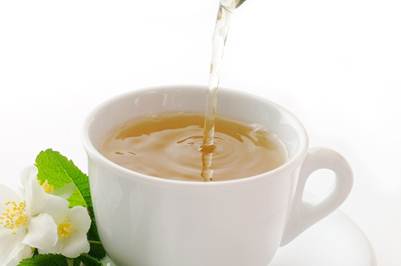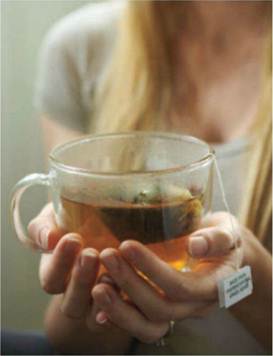Follow our advice to drink tea safely during
your pregnancy.
Making and drinking tea etiquette has been
practiced for thousands of years, and because of their suitability. Tea
contains polyphenol which helps to protect the hearts, and antioxidant to
reduce cancer possibility and other nutrition to enforce the immune system.
When you are pregnant, even the advantages are better. A pleasant cup of tea
can reduce morning sickness and create shorter time of birth pangs. However,
some kinds of tea may do harm to you and should be avoided.

A
pleasant cup of tea can reduce morning sickness.
Useful herbs
“Herbal tea can help hydrate bodies when
women don’t want to take water” – according to Amelia Hirota, a herb expert and
an acupuncturist at Obstetrics Center in The East of Greenwich, R.I. In
addition, some kinds provide with important nutrition for pregnancy, including
magnesium, calcium and iron. Especially, rooibos tea is very good because it is
antioxidant and it doesn’t include caffeine.
Other herbal tea can reduce morning
sickness (ginger and menthols), prevent insomnia (orange chrysanthemum tea) and
stimulate womb contraction more effectively during labor pains (raspberry
leaves). “Many midwives believe that raspberry is enhance womb muscles, which
can contract better”, explained Hirota.
Nettle leaf is a kind of herb which is
usually found in tea for pregnant women and it is advised to use by many herb
expert and midwives. “It is an incredible source of Vitamin and minerals,
including iron, Vitamin A, C and K and Kali”, said Hirota. However, ensure that
all nettle tea you take is made of dry leaf, not the root, and don’t take too
much, especially in the 1st quarter because of its function of stimulating
the womb. However, it is safe to take in the 2nd and 3rd
quarter, according to Hirota. You can make it by yourself by putting 1 ounce of
nettle into 1 litter of water.
Kinds of tea should be avoided
Some herbal tea is not safe when you are
pregnant; they include PMS, diet tea, detoxicating tea as well as tea
containing black cohosh, blue cohosh, and others.
You should avoid some aperient herbal tea,
so read the label carefully. “With high dose, some natural substance, such as cascara
sagrada or acacia leaves can lead to changes in electrolyte“ - said Laurie
Green, tocologist in San Francisco. The electrolyte which includes chloride,
sodium and kali is necessary for cell and normal organ performance. This aperient
herbal tea can stimulate the urinating or diarrhea, both of which cause dehydration,
according to Green.
So, avoid them until you give birth and
complete the breast-feeding; and be careful.
Caffeine-relevant
Unlike herbal tea which contains only 0.4
milligram caffeine each cup, non-herbal tea (black tea, green tea or oolong
tea) contains 40-50 milligram each. Drinking 4 - 5 cups every day means that
you absorb in 200 milligram caffeine. Some research from Department in
California of Kaiser Permanente show that pregnant woman who took more than 200
milligram caffeine everyday stand a chance of miscarriage as twice as others
who avoided this stimulant. However, a study done by The National Health
Institute didn’t show any relevance between drinking 350 milligram caffeine and
miscarriage.
There is no absolute answer for caffeine
effects in pregnancy. Most experts agree that you should use it carefully and
absorb in less than 200 milligram every day. “Caffeine in any forms can cause
stimulation during pregnancy”, said Hirota. “It burdens the liver which is busy
handling pregnancy hormones.’
Get rid of caffeine
Caffeine is the first substance which will
be released into water when you put the tea into water (this happens in the
first 25 seconds). To eliminate it from your favorite tea, embed your tea
packet in 30 seconds, then pour out the water, then fill it with hot water and
embed again. Most caffeine will be eliminated.

A
non-caffeine cup of tea can bring you the sound sleep.